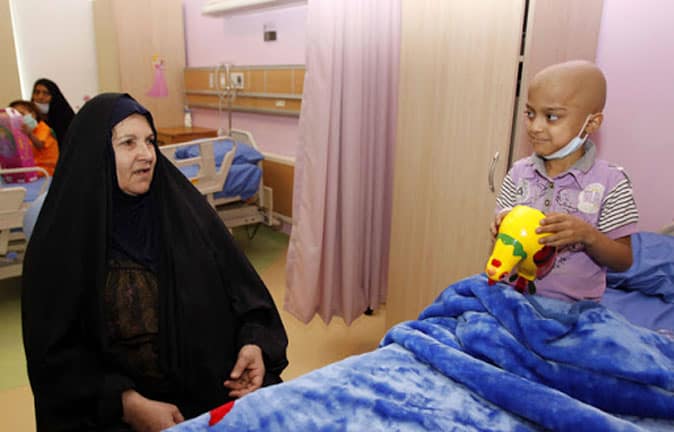-
2000 cases of cancer registered annually in recent years, according to the country’s Southern Environment Department
-
Director general of the department asks oil companies to adhere to environmental, health system rules
About 2000 cases of cancer caused by toxic gases released by oil burners have been registered in the Iraqi city of Basra annually during the past few years, according to the data released by the country’s Southern Environment Department on Thursday.
Walid Hamid, director general of the department, told Al-Iraqiya Al-Akhbariya that oil burners release several toxic gases that lead to lung and other types of cancer.
“Data received from the ministry of health confirm 2000 cases of cancer are recorded annually in Basra due to these burners,” Hamid said.
The director said it was not possible to control air pollution unless oil companies adhere to environmental and health system rules.
A report in Al Monitor, an online news outlet, on Jun.14, 2019 quoted Iraqi oncologist Jawad al-Ali as describing Basra as “another Hiroshima.”
Al-Ali, a member of England’s Royal Society of Physicians, had told the US magazine CounterPunch that studies indicate more than 40 percent of the population around Basra will get cancer.
The CounterPunch story titled “Cancer as Weapon: Poppy Bush’s Radioactive War on Iraq,” said the surge in cancer cases could largely be attributed to the depleted uranium dust left by weapons used by the United States and Britain in the 1991 Gulf War.
Zahra al-Bijari, deputy governor of Basra, told the media last year that the areas of Shatt al-Arab and Zubair and the center of Basra have the highest rate of cancer injuries in all of Iraq.
Data accessed by Al-Monitor from an Iraqi government institution last year said Basra reported 400 to 500 new cancer cases a month between
2015 and 2017. But the cases increased by up to 200 percent in 2018.








